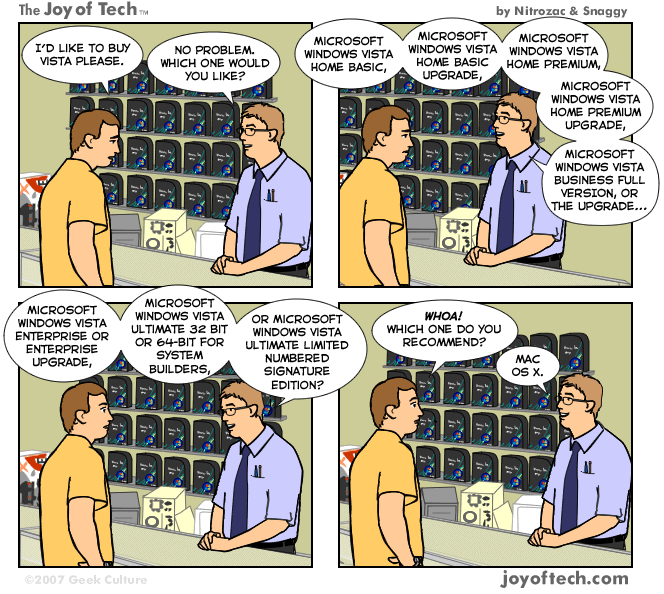I really tire of having this conversation in 2007. We have had widescreen movies since the 1950s. Television has always been until recently, a rather square image. Even the most casual viewer of a film at a movie theater must realize that the image they see at the theater is wider than the traditional TV image they have been watching. And yet I have had customers actually say "no they're not!" Actually mention a term like "aspect ratio" and peoples eyes start to glaze over. People, wake up! In many films half the image is lost if you watch a "fullscreen" version. In reality, many studios do not even produce "fullscreen" versions on DVD anymore. Widescreen has become the default format for DVD. A few studios produce two versions, making you choose at the store which one you will buy. You know what? Widescreen always outsells "fullscreen." Don't believe me? Look at some sales data on videoscan or imdb. Many stores no longer even bother carrying "fullscreen" versions, if they are produced.
Ever look at the new digital TVs for sale? Yep. Most of them are widescreen sets. Sony no longer makes non-widescreen sets.
Here are some examples of differences in the Original Aspect Ratio of some films and the butchered, Modified Aspect Ratio versions.


There are other great examples at widescreen.org, please check them out. Some make you realize how unwatchable "fullscreen" really is.






